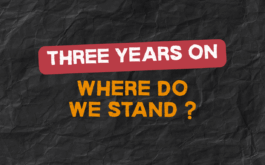
08/01/2025
Two years after the launch of our legal action, we can welcome the new measures announced by BNP Paribas, which recently pledged to stop investing in new bonds issued by oil and gas companies. This is in line with one of the four main demands of our legal action.
As a reminder, these new announcements follow other advances driven by our action, notably: a policy published in May 2023 excluding “direct” and “dedicated” financing for new upstream oil & gas projects, and a decision announced in May 2024 to no longer issue new bonds of oil & gas producers. These two victories already touched upon demands made in our writ of summons of February 2023 and formal notice of October 2022 (1).
The energy deployed over the past two years by The BNP Paribas Case to force the bank to align its strategy with the scientific consensus is beginning to pay off. But many questions remain: are these latest announcements related to the bank’s investments consistent with climate science, and do they go far enough to consider that the bank is complying with its duty of vigilance?
To prevent the climate crisis from worsening further, BNP Paribas must immediately stop ALL financial support for developers, i.e. companies such as TotalEnergies that are opening up new fossil fuel projects. According to the Intergovernmental Panel on Climate Change (IPCC), the International Energy Agency (IEA) and the United Nations, these companies are working dangerously against limiting global warming to 1.5°C and even 2°C, and achieving carbon neutrality by 2050. In particular, the bank must stop :
It is on this basis that the organizations of The BNP Paribas Case (Friends of the Earth France, Notre Affaire à Tous and Oxfam France) took the bank to court in February 2023.
Since May 2024, BNP Paribas has been claiming that it “has refrained, and will continue to refrain in the future, from participating in conventional bond issues by companies in the oil and gas sector active in exploration-production” (2). This is good news, as BNP Paribas is one of the leaders in financing the sector. It has granted US$23.9 billion to fossil fuels developers between 2021 and 2023, and 44% of this financing was in the form of bond underwriting. In other words, BNP Paribas is committed to no longer issuing certain new bonds, including for the largest oil & gas companies, for which BNP Paribas was the world’s 3rd largest financier between 2021 and 2023 (3).
Unfortunately, the scope of this announcement remains unclear, and could conceal some major flaws:
While BNP Paribas pledged in May 2024 to stop facilitating bond underwriting for oil and gas producers via its investment bank, it continued to buy bonds from these fossil fuel companies via its asset management business. As demonstrated by Reclaim Finance, TotalEnergies raised another US$4.25 billion on the bond market last April, and BNP Paribas was among the investors who bought these bonds (4).
The new policy of the bank’s subsidiary BNP Paribas AM, published at the end of November 2024, means that it will refrain from buying new bonds from developers like TotalEnergies.
The bank writes in black and white in its climate policy: “we will exclude from our investment universe (…) bonds issued on the primary market by oil and gas exploration and production companies.” It defines these companies as “all companies active in the ‘upstream’ oil and gas sector, regardless of the proportion of oil and gas produced” (5).
BNP Paribas has therefore made the logical choice to stop investing in financial products that it refuses to structure and underwrite, as they contribute to climate change. Moreover, these steps happen at a moment when the potential takeover of AXA’s asset manager, AXA IM, announced this summer, should propel BNP AM into 2nd place in Europe, behind Amundi (Crédit Agricole’s asset manager).
The BNP Paribas Case here sees BNP Paribas partly responding to a request included in its writ of summons. We now expect the bank to set down this policy in black and white for its bond-underwritingbank too, even though it claims to have already put it into practice.
But for the bank to respect its climate duty of vigilance, it is imperative that this policy be further improved, because:
The latest announcements from BNP Paribas reveal a glaring lack of consistency: the bank applies a double standard between its various activities.
First of all, has BNP Paribas stopped granting new loans to companies which, like TotalEnergies, are planning new oil and gas projects? The answer is no. Indeed, it refuses to apply to its lending activities what it claims to apply to its asset management and bond-underwriting activities.
Yet general loans account for more than 54% of the financing it has granted to fossil fuels expansion between 2021 and 2023 (3), and contribute massively to the sector’s development. BNP Paribas continues to provide this type of financing. In autumn 2024, for example, it contributed to a €2 billion loan to Polish energy company ORLEN, a developer of new oil and gas projects. This was also the case for German developer RWE earlier in the year (7).
In addition, as explained above, the same double standard also applies to share underwriting and share purchase (asset management), for which BNP Paribas has not taken any consistent vigilance measures.
Finally, all BNP Paribas’ commitments for its various branches concern only upstream exploration and production activities. It leaves aside transport activities, and in particular the expansion of the liquefied gas (LNG) sector, which have no place in the International Energy Agency’s scenario of carbon neutrality by 2050 (8).
With its latest announcements, BNP Paribas is acknowledging what NGOs have been repeating over and over again: when the bank grants “general” financing (i.e. not earmarked for a specific activity or project) or invests in a company developing oil or gas, it is contributing to this expansion, which is incompatible with the objective of limiting global warming to 1.5°C and with international standards.
Admittedly, BNP has reduced its financing to the oil and gas industry in 2023 and, thanks to public pressure, seems at last to recognize the need to reduce the use of fossil fuels. But to come closer to meeting its duty of vigilance, it must go further by firmly and definitively ending all forms of financial support for developers of fossil fuel projects. BNP Paribas would then take the lead in encouraging all players in the financial sector to make this necessary shift for the climate.
NOTES:


